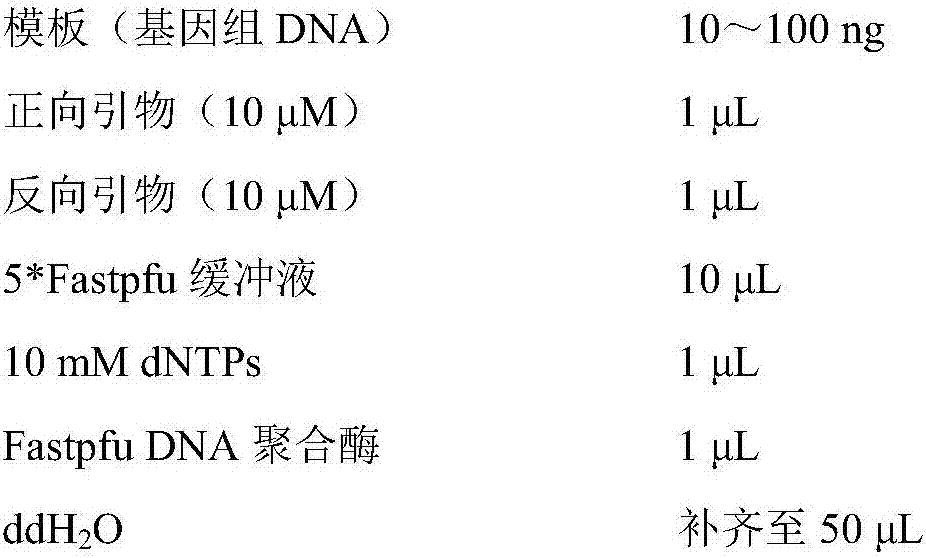Novel azoospermia pathogenic gene and application thereof
A sperm and gene technology, applied in the field of genes, can solve the problem of unclear relationship between genotype and phenotype
- Summary
- Abstract
- Description
- Claims
- Application Information
AI Technical Summary
Problems solved by technology
Method used
Image
Examples
Embodiment 1
[0046] Example 1 Determination of new pathogenic genes of acephalospermia.
[0047] A consanguineous marriage family with acephalospermia was collected, and the patient showed infertility, headless, pin-like head or loose head-tail connection and other typical characteristics of acephalospermia.
[0048] Whole-exome sequencing was performed on all patients, and the specific steps were as follows:
[0049] Sample preparation: collect the peripheral blood of the patient, use the kit to extract the genomic DNA in the peripheral blood leukocytes (QIAamp DNAMini Kit 51304. Qiagen, USA), use the NanoDrop 2000 to measure the concentration and purity of the DNA (Thermo Scientific, USA), and obtain The OD260 / OD280 of the genomic DNA of each sample is between 1.7 and 2.0, the concentration is not less than 100ng / μl, and the total amount is not less than 30μl.
[0050] Then, the exome sequences of the above patient samples were sequenced. The sequencing platform was Illumina Hiseq2000,...
Embodiment 2
[0060] Example 2 Confirm the above-mentioned pathogenic gene of acephalospermia by sequencing with Sanger method.
[0061] Patients with acephalospermia and their family members were included, and the BRDT gene was verified as the causative gene of acephalospermia. In the verification, the Sanger method was used to verify the mutation of the BRDT gene, which considered the verification of samples in the family.
PUM
 Login to View More
Login to View More Abstract
Description
Claims
Application Information
 Login to View More
Login to View More - Generate Ideas
- Intellectual Property
- Life Sciences
- Materials
- Tech Scout
- Unparalleled Data Quality
- Higher Quality Content
- 60% Fewer Hallucinations
Browse by: Latest US Patents, China's latest patents, Technical Efficacy Thesaurus, Application Domain, Technology Topic, Popular Technical Reports.
© 2025 PatSnap. All rights reserved.Legal|Privacy policy|Modern Slavery Act Transparency Statement|Sitemap|About US| Contact US: help@patsnap.com



